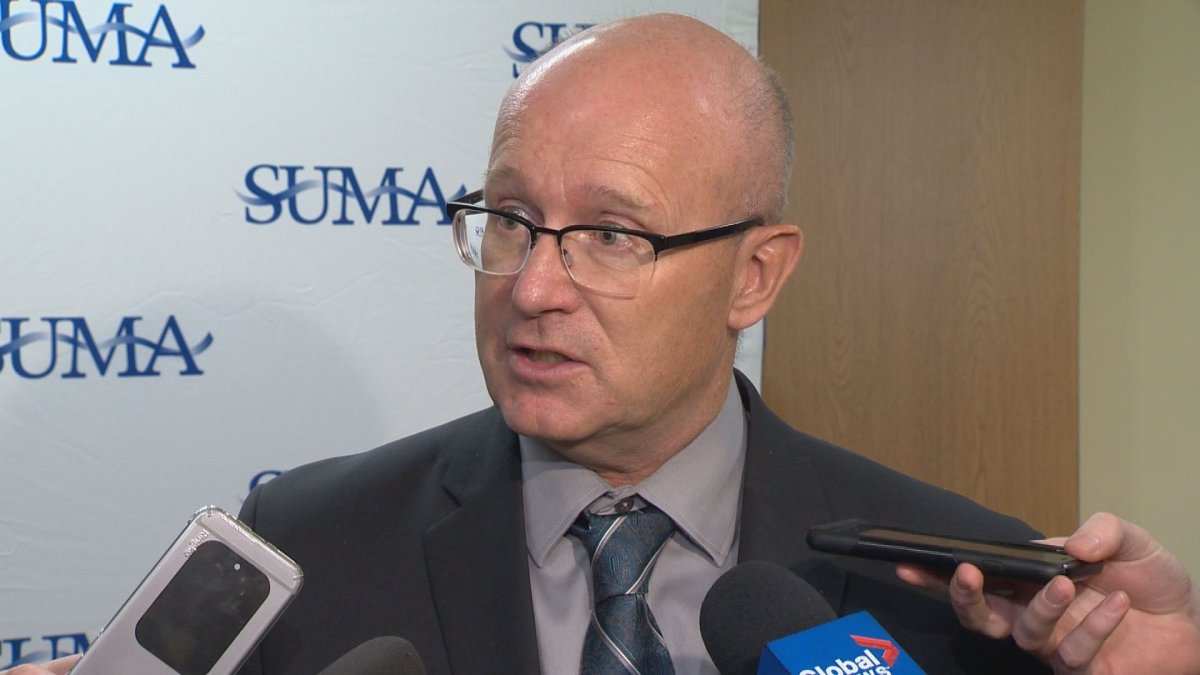When Premier Scott Moe addressed the Saskatchewan Association of Urban Municipalities just weeks into his new job he promised mayors and councillors across Saskatchewan more transparency on revenue sharing.

Cities like Regina had to enact mid-year property tax hikes to make up for lost funding due to the reduction in the grants-in-lieu program. This was money the province paid to cities with Crown property, like SaskEnergy and SaskPower buildings, instead of property taxes.
“We’ve given our points forward to where we’re at with all our jurisdictions on revenue sharing, and certainly told them where they’re at this year,” Government Relations Minister Warren Kaeding said.
“We’re just at that pause in moving it forward so we can all get to the table, and look at what changes they might want to have in revenue sharing.”
As for the April 10 provincial budget, when Global News asked Kaeding if municipalities should expect another round of midyear property tax hikes he said no.
“No, I think municipalities… we’ve had those discussions and they’re in a good spot moving forward this year,” Kaeding replied.
READ MORE: Sask. revenue sharing frozen before being affected by increased PST
Due to an $11 million funding shortfall last year, Regina city council approved an additional 2.5 per cent mill rate increase April 18, 2017. That was on top of a 3.99 per cent increase in February.
Mayor Michael Fougere is pleased Kaeding followed through on Moe’s transparency promise in the lead up to this budget.
“They have been open about the challenges they face, we know that, but they’re also open about how they want to approach issues and that’s a welcome discussion to have,” Fougere said.
Aside from grants-in-lieu, municipal revenue sharing is determined by giving municipalities a share of one fifth of PST revenue from two years ago.
Due to backlash, the province capped the grants-in-lieu cut at no more than 30 per cent of what a municipality received in revenue sharing. This helped nine communities.
SUMA president Gordon Barnhart said the organization had a few briefings with government officials, including Kaeding and Finance Minister Donna Harpauer, in the budget lead up.
“This has been a change for us, consultation and cooperation well in advance of decisions being made,” Barnhart said.
“That’s pleasing from our point of view. We’re not expecting all our advice will be followed but it feels good to be consulted in advance.”
READ MORE: Premier Scott Moe warns of tough budget; wants to renegotiate revenue sharing
The SUMA president added that they do know it will be a difficult budget moving forward. That was echoed by Saskatchewan Association of Rural Municipalities (SARM) president Ray Orb.
SARM member communities also receive a portion of revenue sharing dollars. Orb has also had consultation sessions with Kaeding and Harpauer.
The estimated PST revenue from the 2016-17 budget year was $1.18 billion. The previous two years of PST revenue pools were $1.28 billion and $1.35 billion.
“It dropped off naturally because the economy slowed down, but we’re hoping that turns around,” Orb said.
Now that PST is six per cent the revenue sharing formula will be renegotiated in time for the 2019-20 budget. Kaeding says that process will begin after the April 10 budget is delivered.




Comments